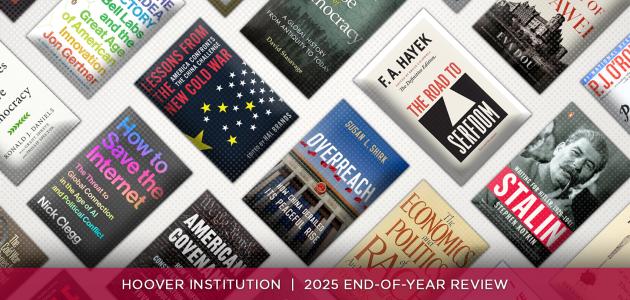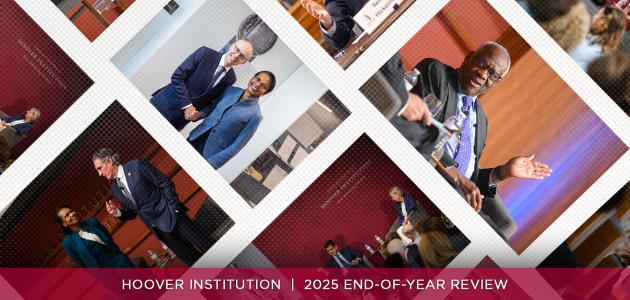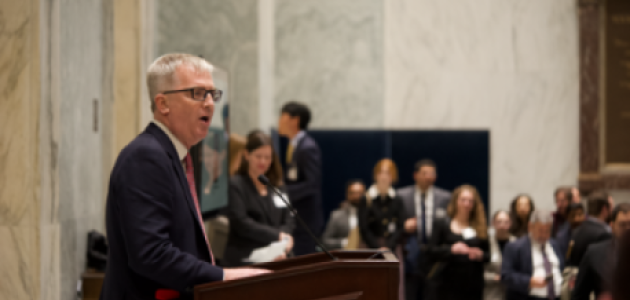
In their book, they acknowledged that the global economy was changing dramatically and posited that relatively minor forces in the industrial economy would play a critical role in the network economy. These changes invited their careful reassessment of existing legal, policy, and regulatory institutions, anchored by serious formal theoretical economic reasoning and empirical analysis.
Their book was revolutionary and, twenty years later, the digital revolution has come. Communications are faster, financial transactions nearly instantaneous, and China is an economic behemoth, but economic principles still underpin this new “network economy.”
On May 29, 2019, at a Hoover Institution symposium, “Have Information Rules Changed? Revisiting the Network Economy.” Shapiro and Varian will sit down to discuss how the economic world has changed since the book’s release.
Over this twenty-year period, the world changed even more than Shapiro and Varian could have envisioned. In 1999, Facebook, Uber, and YouTube were still the brainchildren of graduate students and young entrepreneurs; Amazon, Netflix, and Google were fledgling companies. Facebook, Alphabet, and Amazon are now storybook successes—developing large platform positions in many markets.
Do the predictions, prescriptions, and precautions of Shapiro and Varian still ring true today? Are they as relevant now as they were two decades ago? Have policy makers rightly followed them?
In the symposium’s second panel, economists, engineers, and legal experts will discuss the outlook for the high-tech industry. The success of a handful of firms in the network economy is generating antitrust and regulatory interest. Policy makers are ramping up their efforts to understand the dynamics of the network economy and the scale of large firms.
Do the large high-tech firms have inordinate market power? Should they be broken up, as some in Washington, DC, are now advocating? Or are they innovation incubators creating the Fourth Industrial Revolution—the fusion of digital technologies, characterized by big data, artificial intelligence, robotics, smartphones, and autonomous vehicles? Are the largest firms actually competitors—not monopolies—as they compete fiercely with one another to establish their positions in, for example, cloud computing, advertising, retail sales, mobile operating systems, and entertainment? How do issues of personal privacy, data security, and free speech enter into the in the policy and regulatory discussions?
The panel includes economic historian Niall Ferguson, Stanford engineering professor Riitta Katila, Stanford law professor Doug Melamed, and Hoover Institution fellow Nicolas Petit, who is also a law professor at the University of Liège.
This symposium is the second of a series on competition, scale, and technology (CST) that is part of the Hoover IP2 initiative (Intellectual Property, Innovation, and Prosperity). CST encourages scholarly dialogue and supports research on the impact of existing large, high-tech companies on innovation, economic growth, consumer welfare, and labor markets.
The Fourth Industrial Revolution, artificial intelligence, and 5G smartphone technology will affect how people work, communicate, and travel. The CST initiative seeks to incorporate legal antitrust and regulation theory and practice as well as economic and statistical analysis of economic growth and labor markets in the United States, Europe, and Asia into cutting edge research and innovation, consumer welfare, and, importantly, the role of government.





















